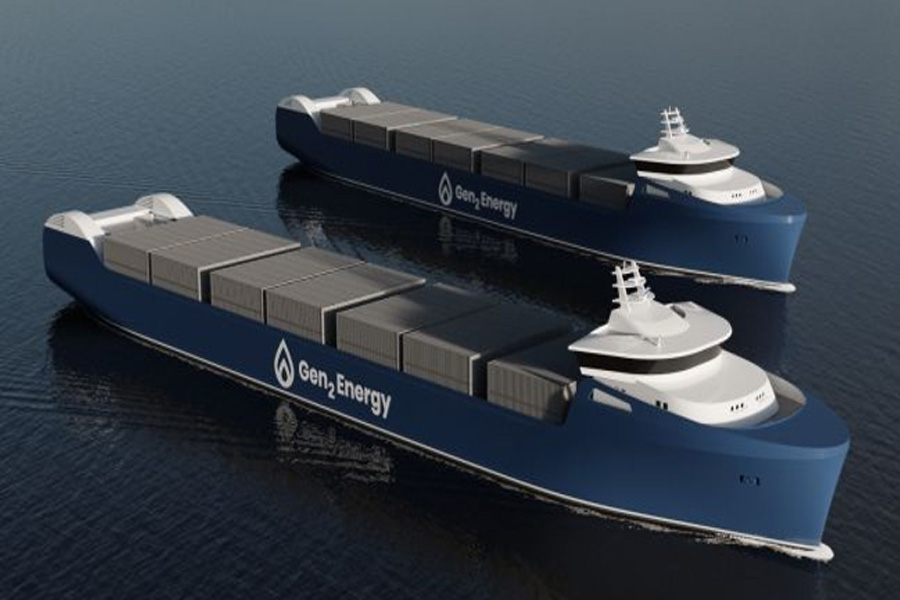The maritime industry, a vital component of global trade and transportation, relies heavily on effective ship management and innovative design to ensure safety, efficiency, and sustainability. Ship management encompasses the operations, maintenance, and administration of vessels, while ship design involves the intricate process of creating ships that meet specific operational requirements. This article delves into the intricacies of ship management and design, highlighting their significance, challenges, and advancements in the field.
The Importance of Ship Management
Ship management is a multifaceted domain that involves a range of activities aimed at ensuring the smooth operation of vessels. Key aspects of ship management include:
Operational Efficiency
Operational efficiency is paramount in ship management. This involves optimizing routes, managing fuel consumption, and ensuring that ships adhere to schedules. Efficient operations reduce costs and enhance the reliability of maritime transport, which is crucial for maintaining the supply chain integrity.
Safety and Compliance
Ensuring the safety of the crew, cargo, and vessel is a primary concern. Ship management companies must comply with international regulations and standards, such as the International Maritime Organization (IMO) conventions. Regular safety drills, maintenance checks, and adherence to protocols are essential to prevent accidents and ensure compliance with legal requirements.
Crew Management
The well-being and performance of the crew are critical to the success of any maritime operation. Effective crew management involves recruitment, training, and retention of skilled personnel. Providing adequate rest periods, fostering a safe working environment, and offering continuous professional development opportunities are key components of crew management.
Maintenance and Repairs
Regular maintenance and timely repairs are crucial to extending the lifespan of a vessel and ensuring its optimal performance. Ship management companies must develop comprehensive maintenance schedules, conduct inspections, and address any issues promptly. This proactive approach minimizes downtime and prevents costly breakdowns.
The Role of Ship Design
Ship design is a complex process that combines engineering, aesthetics, and functionality. The design phase is critical as it lays the foundation for the vessel’s performance, safety, and environmental impact. Key elements of ship design include:
Hydrodynamics and Hull Design
Hydrodynamics is the study of how water interacts with the ship’s hull. A well-designed hull minimizes resistance and improves fuel efficiency. Naval architects use advanced computational fluid dynamics (CFD) simulations to optimize hull shapes, ensuring that ships can navigate through water with minimal drag.
Structural Integrity
The structural integrity of a ship is vital for its safety and longevity. Ship designers must ensure that the vessel can withstand the stresses and strains of maritime operations, including rough seas and heavy loads. This involves selecting appropriate materials and using advanced engineering techniques to create robust structures.
Propulsion Systems
The choice of propulsion system significantly impacts a ship’s efficiency and environmental footprint. Traditional diesel engines are being supplemented or replaced by greener alternatives such as liquefied natural gas (LNG) engines, hybrid systems, and even fully electric propulsion in some cases. The design of the propulsion system must consider factors such as fuel efficiency, emissions, and reliability.
Environmental Considerations
Environmental sustainability is a growing concern in ship design. Modern ships are designed to reduce emissions, minimize waste, and utilize renewable energy sources where possible. Technologies such as scrubbers, ballast water treatment systems, and energy-efficient lighting are increasingly integrated into ship designs to meet stringent environmental regulations.
Challenges in Ship Management and Design
Despite advancements, the maritime industry faces several challenges in ship management and design. These challenges require innovative solutions and continuous adaptation to evolving circumstances.
Regulatory Compliance
The maritime industry is heavily regulated, with numerous international, national, and regional laws governing various aspects of ship operations. Keeping up with these regulations and ensuring compliance can be challenging. Ship management companies must stay informed about changes in regulations and implement necessary adjustments promptly.
Technological Advancements
The rapid pace of technological advancements presents both opportunities and challenges. While new technologies can enhance efficiency and safety, integrating these technologies into existing systems can be complex and costly. Ship management companies must carefully evaluate the benefits and feasibility of adopting new technologies.
Environmental Impact
Reducing the environmental impact of maritime operations is a significant challenge. Ship designers and managers must work together to develop and implement solutions that minimize emissions, reduce waste, and enhance energy efficiency. Balancing economic viability with environmental responsibility requires innovative thinking and collaboration across the industry.
Skilled Workforce
Attracting and retaining skilled professionals in the maritime industry is an ongoing challenge. The industry requires a workforce with specialized knowledge and skills, ranging from engineering and navigation to environmental science and regulatory compliance. Investing in education and training programs is essential to address this challenge.
Advancements in Ship Management and Design
The maritime industry is continuously evolving, with new technologies and practices enhancing ship management and design. Some notable advancements include:
Digitalization and Automation
Digital technologies are transforming ship management and design. The use of advanced software for route optimization, predictive maintenance, and real-time monitoring enhances operational efficiency. Automation technologies, such as autonomous ships and unmanned aerial vehicles (UAVs), are being explored to further streamline operations and reduce human error.
Green Technologies
The development and adoption of green technologies are driving sustainability in the maritime industry. Innovations such as air lubrication systems, which reduce hull friction, and wind-assisted propulsion systems, which harness wind power, are gaining traction. These technologies contribute to reducing fuel consumption and lowering greenhouse gas emissions.
Smart Ships
Smart ships equipped with sensors, data analytics, and artificial intelligence (AI) are revolutionizing ship management and design. These ships can monitor and analyze various parameters, such as engine performance, weather conditions, and fuel usage, to optimize operations. Smart ships enable proactive maintenance, enhance safety, and improve overall efficiency.
Modular Design
Modular design is an emerging trend that offers flexibility and cost savings in shipbuilding. This approach involves constructing ships in sections or modules, which can be easily assembled and modified. Modular design allows for quicker construction times, easier repairs, and the ability to upgrade specific components without overhauling the entire vessel.
Future Trends in Ship Management and Design
As the maritime industry continues to evolve, several trends are expected to shape the future of ship management and design:
Decarbonization
Decarbonization is a major focus for the maritime industry, with the IMO setting ambitious targets to reduce greenhouse gas emissions. Future ship designs will increasingly incorporate alternative fuels, such as hydrogen and ammonia, and energy-efficient technologies to achieve these goals. Collaboration across the industry is essential to develop viable solutions for decarbonization.
Autonomous Shipping
Autonomous ships, capable of operating without human intervention, are poised to revolutionize the industry. These vessels use advanced sensors, AI, and machine learning algorithms to navigate and make decisions. While fully autonomous shipping is still in its early stages, it holds promise for enhancing safety, reducing operational costs, and addressing the shortage of skilled seafarers.
Circular Economy
The concept of a circular economy is gaining traction in ship design. This approach emphasizes sustainability by designing ships for longer lifespans, reusing materials, and recycling components at the end of their life cycle. Circular economy principles help reduce waste, conserve resources, and promote environmental responsibility.
Enhanced Connectivity
Enhanced connectivity through satellite communication and the Internet of Things (IoT) is transforming ship management. Real-time data exchange between ships, ports, and management centers improves decision-making, enhances safety, and enables efficient resource allocation. Connectivity also supports remote diagnostics and maintenance, reducing the need for physical inspections.
Conclusion
Ship management and design are critical components of the maritime industry, ensuring the safe, efficient, and sustainable operation of vessels. Effective ship management encompasses operational efficiency, safety, crew management, and maintenance, while innovative ship design focuses on hydrodynamics, structural integrity, propulsion systems, and environmental considerations.
Despite challenges such as regulatory compliance, technological advancements, environmental impact, and workforce skills, the maritime industry continues to evolve. Advancements in digitalization, green technologies, smart ships, and modular design are driving improvements in ship management and design. Looking ahead, trends such as decarbonization, autonomous shipping, circular economy principles, and enhanced connectivity will shape the future of the industry.
By embracing innovation and collaboration, the maritime industry can navigate the seas with precision and sustainability, ensuring its continued role as a cornerstone of global trade and transportation.





